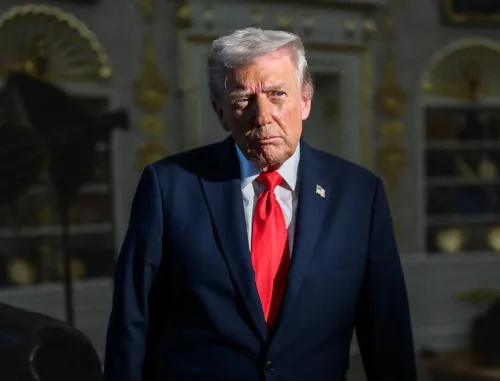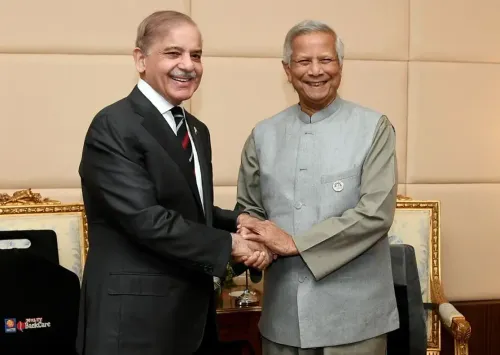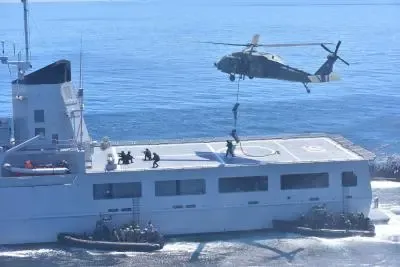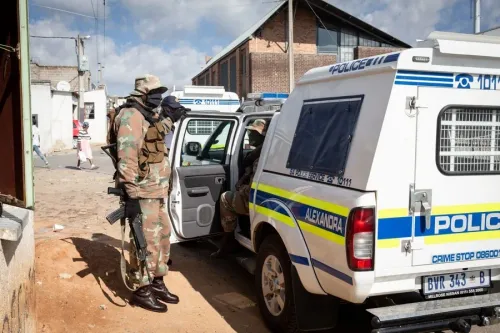Is the Ceasefire Agreement Between India and Pakistan a Positive Step Towards Lasting Peace?
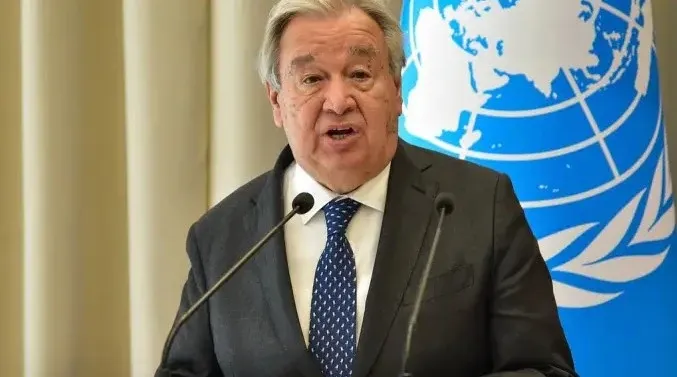
Synopsis
Key Takeaways
- Guterres welcomes the ceasefire agreement as a positive development.
- Ceasefire aims to reduce hostilities and foster dialogue.
- International leaders support de-escalation efforts.
- UN stands ready to assist in promoting peace.
- Condemnation of terrorism remains a priority.
United Nations, May 11 (NationPress) - United Nations Secretary-General Antonio Guterres regards the recent ceasefire agreement between India and Pakistan as a significant development in reducing tensions, expressing hope that it will pave the way for sustainable peace. His spokesperson, Stephane Dujarric, conveyed this sentiment on Saturday.
Guterres applauds the ceasefire as a constructive action aimed at ending ongoing hostilities and diminishing regional tensions. He anticipates that this agreement will foster an environment conducive to addressing long-standing issues between the two nations.
Dujarric stated, “The United Nations is prepared to assist in promoting peace and stability in the region.”
On Saturday, India and Pakistan confirmed a ceasefire following a four-day conflict that escalated beyond Kashmir.
The hostilities erupted when India targeted what it termed “terrorist infrastructures” in retaliation for the massacre of 26 individuals in Pahalgam last month, attributed to The Resistance Front, a faction connected to the terrorist group Lashkar-e-Toiba (LeT).
During the rising tensions last week, Guterres expressed his deep concerns, remarking, “The world cannot afford a military confrontation between India and Pakistan.” He repeatedly called for de-escalation, even holding a dedicated press meeting on the issue.
Guterres engaged in discussions with India's External Affairs Minister S. Jaishankar and Pakistan's Prime Minister Shehbaz Sharif last month, conveying his worries about the escalating tensions.
Numerous international leaders, including US Secretary of State Marco Rubio, urged both nations to de-escalate the situation. Guterres' Deputy Spokesperson Farhan Haq noted on Thursday, “We support all efforts aimed at de-escalation.”
Guterres has condemned the terrorist act in the strongest possible terms, stating, “Targeting civilians is unacceptable, and those responsible must face justice through transparent and lawful means.” He expressed hope for a resolution to the crisis, although the US played a critical diplomatic role.
At Pakistan's request, the UN Security Council conducted a closed-door consultation regarding the situation, with a briefing from Assistant Secretary-General Mohamed Khaled Khiari. However, it did not convene for a formal open session concerning the conflict.
Following the Pahalgam massacre, the Council issued a unanimous statement condemning the attack, with Pakistan, an elected member, concurring. It “strongly condemned” the Pahalgam terrorist attack and called for global cooperation to bring the perpetrators to justice.


